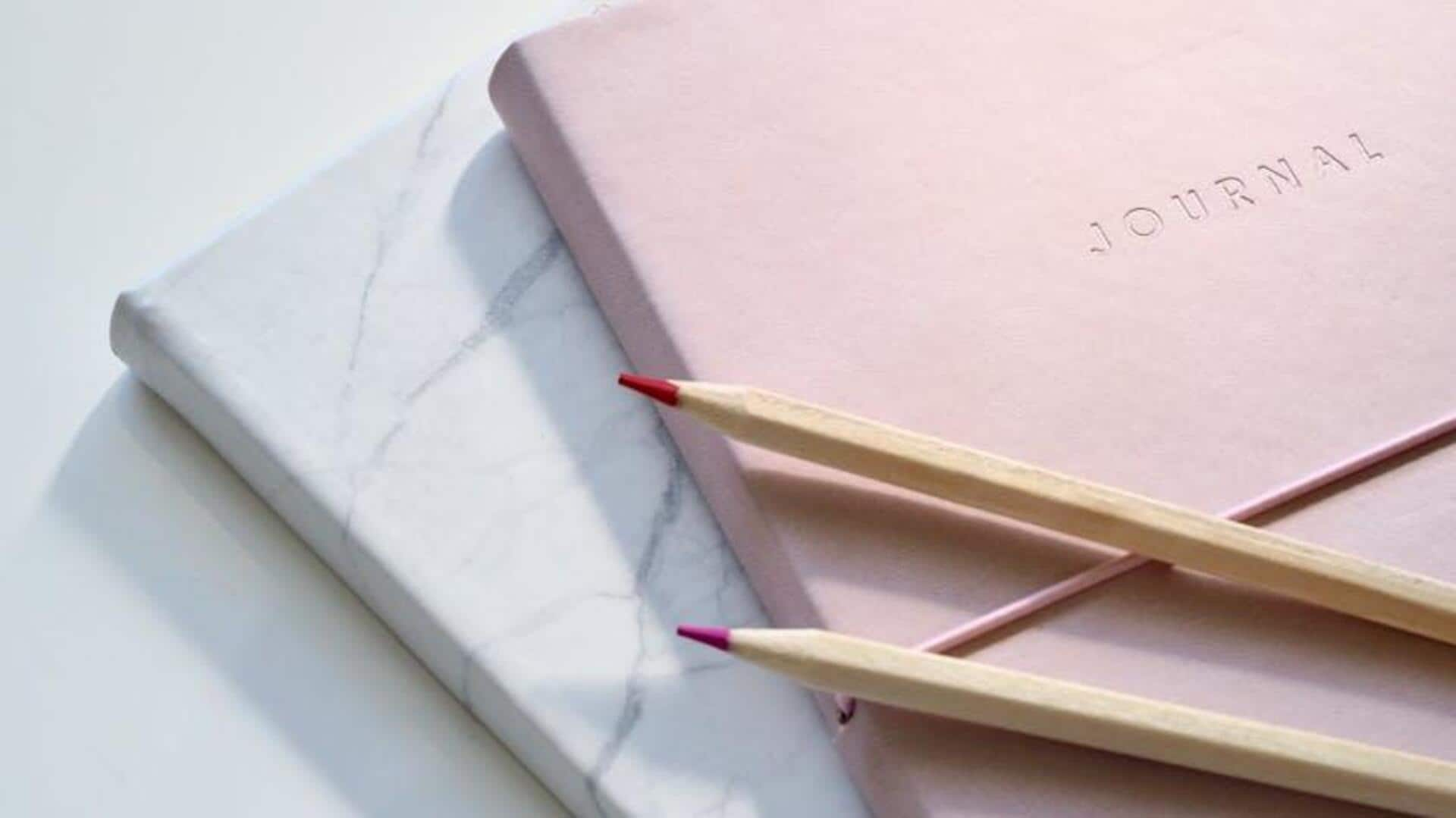
Journaling 101: Tips to get started
What's the story
Journaling is a simple yet effective way to boost your mental health. It gives you a chance to reflect, process emotions, and track your growth over time. For beginners, the process can be daunting, but with a few practical tips, you can make journaling a part of your daily routine. Here are five beginner-friendly tips to get you started on this journey toward better mental well-being.
Tip 1
Start with a few minutes daily
Start by setting aside just five minutes every day for journaling. This short duration makes it less intimidating and easier to incorporate into your daily routine. As you get comfortable, you can gradually increase the time spent writing. The key is consistency; even brief entries can have a significant impact on your mental clarity and emotional balance over time.
Tip 2
Use prompts for inspiration
If you're facing writer's block, prompts can be a great way to kickstart your journaling. They provide direction and help you focus on specific themes or questions. You can find numerous online resources with prompts like "What made me smile today?" or "How do I feel right now?" Using these prompts can make the process smoother and more engaging.
Tip 3
Keep it private and honest
One of the most important aspects of journaling is that it should be private and honest. Knowing that no one else will read your entries allows you to express yourself freely without any fear of judgment. This honesty is the key to self-discovery and understanding your emotions better.
Tip 4
Experiment with different styles
Don't hesitate to experiment with different journaling styles until you find the one that suits you best. Some people prefer free writing, while others find bullet points or lists more effective. You could also try artistic expressions like drawing or collage if that resonates more with you than traditional writing.
Tip 5
Reflect on past entries regularly
Going through past journal entries every once in a while gives you valuable insights into your thoughts and feelings over time. It helps you recognize patterns in your behavior or mood changes that you may not have noticed otherwise. Reflection also reinforces how much progress you've made since you started this practice.